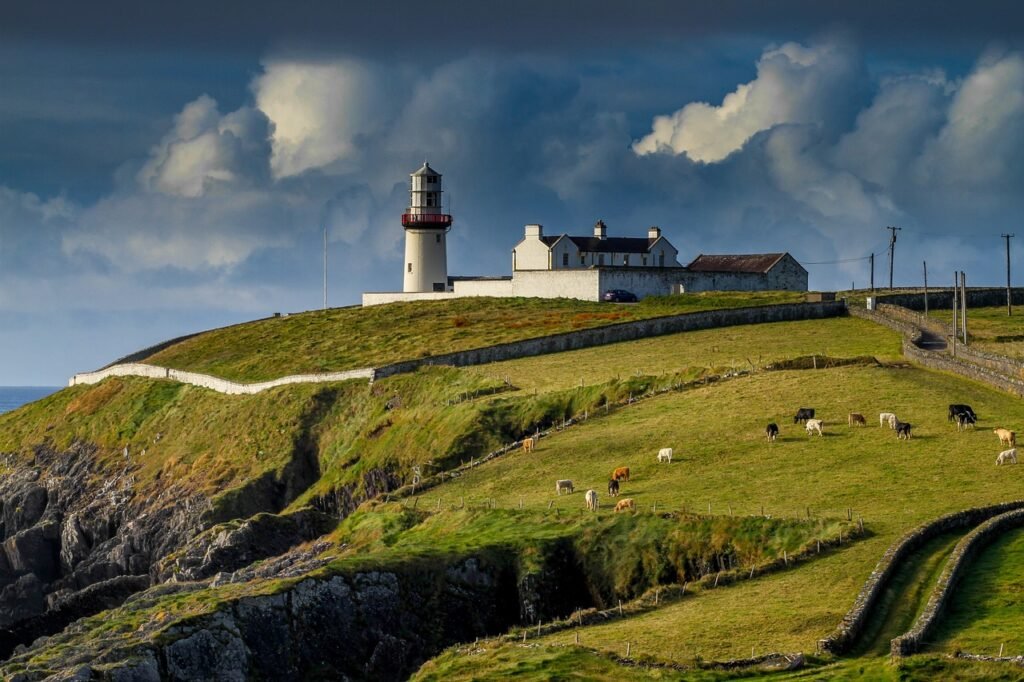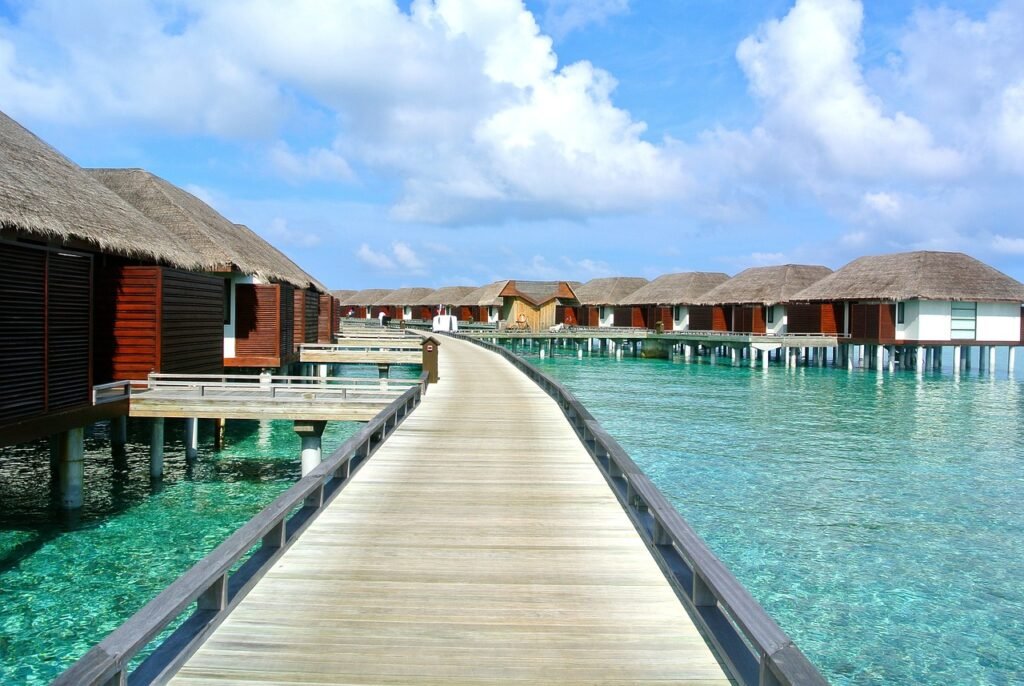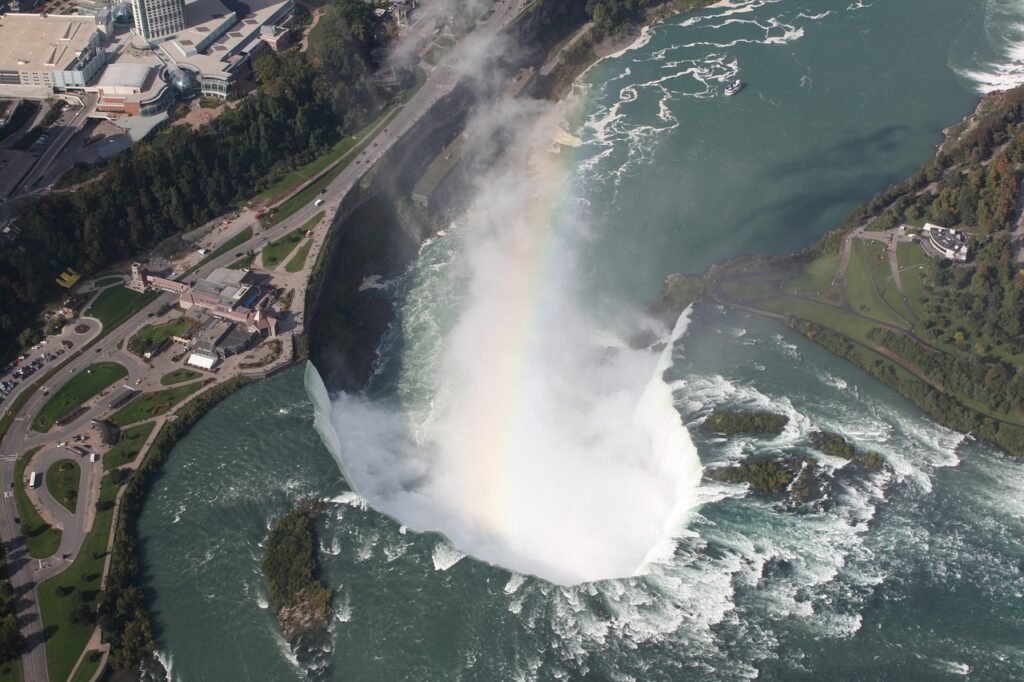Welcome to the land of myths, legends, and breathtaking landscapes – Ireland! Nestled in the heart of Europe, this enchanting country has captivated travelers for centuries with its rich history, vibrant culture, and warm hospitality. From ancient ruins to bustling cities, serene countryside to rugged coastlines, Ireland offers a diverse range of experiences that appeal to every type of traveler. In this comprehensive guide, we’ll delve into the essence of Ireland as a tourist destination, covering everything from its history and population to the best places to visit, food and drinks, practical travel tips, and more. So, pack your bags and get ready to embark on an unforgettable journey through the Emerald Isle!
- History, Population, and Culture: Ireland boasts a fascinating history that spans thousands of years, shaped by Celtic tribes, Viking invasions, Norman conquests, and struggles for independence. The island’s population is around 5 million people, with the majority residing in urban areas such as Dublin, Cork, Galway, and Limerick. Irish culture is renowned for its strong emphasis on music, literature, and folklore, with traditional Irish music sessions held in pubs across the country and a deep-rooted love for storytelling evident in its ancient myths and legends. The Irish people are known for their friendliness and hospitality, making visitors feel welcome wherever they go. When it comes to costumes, while traditional Irish attire like the Aran sweater and tweed cap can still be seen in rural areas and during cultural events, modern fashion trends prevail in urban centers.
- Best Places to Visit: Ireland is brimming with iconic landmarks, stunning natural beauty, and cultural gems waiting to be explored. Some must-visit destinations include:
- Dublin: The vibrant capital city, home to historic sites like Trinity College, Dublin Castle, and the Guinness Storehouse.
- The Cliffs of Moher: Majestic sea cliffs rising dramatically from the Atlantic Ocean, offering breathtaking views of the coastline.
- The Ring of Kerry: A scenic drive through Ireland’s southwest, passing picturesque villages, rugged mountains, and pristine lakes.
- Galway: A charming city renowned for its lively arts scene, medieval streets, and proximity to the stunning Connemara region.
- The Giant’s Causeway: A UNESCO World Heritage Site in Northern Ireland, featuring thousands of interlocking basalt columns formed by volcanic activity.
- Climate and Best Time to Travel: Ireland has a temperate maritime climate, characterized by mild winters and cool summers. The weather can be unpredictable, with frequent rain showers throughout the year. The best time to visit Ireland is during the summer months (June to August) when temperatures are mild, and daylight hours are long, making it ideal for outdoor activities and sightseeing. However, be prepared for crowds and higher accommodation prices during this peak tourist season. Alternatively, spring (April to May) and autumn (September to October) offer milder weather and fewer crowds, making them excellent times to visit for those seeking a more tranquil experience.
- Food and Drinks: Ireland’s culinary scene has undergone a renaissance in recent years, with a focus on fresh, locally sourced ingredients and innovative interpretations of traditional dishes. Some must-try Irish delicacies include:
- Irish stew: A hearty dish made with tender lamb or beef, potatoes, onions, and carrots, simmered in a rich broth.
- Boxty: A type of potato pancake, crispy on the outside and fluffy on the inside, often served with savory toppings like smoked salmon or creamy mushrooms.
- Seafood chowder: A comforting soup made with fresh seafood, potatoes, onions, and cream, perfect for warming up on a chilly day.
- Soda bread: A traditional Irish bread made with flour, buttermilk, baking soda, and salt, baked until golden brown and served warm with butter.


As for drinks, Ireland is famous for its Guinness stout, brewed to perfection for over 250 years, as well as its thriving whiskey industry, with distilleries producing a wide range of single malts and blends.
- Currency and Flights: The currency used in Ireland is the Euro (EUR), and major credit cards are widely accepted. When it comes to flights, Ireland is well-connected to international destinations, with Dublin Airport serving as the main gateway for most travelers. Airlines such as Aer Lingus, Ryanair, and British Airways operate regular flights to and from Ireland, offering convenient options for travelers from around the world.
- Hotels and Places to Stay: From luxury hotels to quaint bed and breakfasts, Ireland offers a diverse range of accommodation options to suit every budget and preference. In cities like Dublin, Cork, and Galway, you’ll find a plethora of hotels ranging from boutique to five-star properties, offering top-notch amenities and central locations. For a more authentic experience, consider staying in a charming guesthouse or countryside inn, where you can immerse yourself in the local culture and hospitality.
- Amusement Parks: While Ireland may not be known for its amusement parks on the same scale as some other destinations, it does offer some family-friendly attractions and theme parks. One such example is Tayto Park, located in County Meath, which features thrilling rides, animal encounters, and Ireland’s only wooden roller coaster. For those traveling with children, places like Fota Wildlife Park in County Cork and Dublin Zoo offer opportunities to observe a variety of exotic animals up close.
- Travel Tips for Techies: For tech-savvy travelers visiting Ireland, here are some handy tips and pieces of tech to enhance your experience:
- Download offline maps: While Ireland has good mobile coverage in most areas, having offline maps on your smartphone can be invaluable, especially when exploring remote regions or driving in rural areas where GPS signal may be weak.
- Invest in a portable charger: Keep your devices powered up on the go with a portable charger or power bank, particularly if you plan on using your smartphone for navigation, photography, or staying connected with friends and family.
- Consider a SIM card: If you’re staying in Ireland for an extended period or plan on using your smartphone extensively, purchasing a eSIM like Airalo or local SIM card with a data plan can be a cost-effective way to stay connected without racking up hefty roaming charges.
- Universal Travel Adapter: Ireland uses Type G electrical outlets, so be sure to pack a universal travel adapter to charge your devices. Look for one with multiple USB ports to charge multiple devices simultaneously.
- Digital Luggage Scale: Avoid excess baggage fees by weighing your luggage before heading to the airport. A compact digital luggage scale allows you to accurately measure the weight of your bags and ensure you stay within the airline’s weight limits.
- Solar-Powered Charger: Take advantage of Ireland’s abundant green landscapes by harnessing solar power to charge your devices on the go. A solar-powered charger is perfect for outdoor enthusiasts who want to stay connected without relying on electrical outlets.
Essential Luggage: Your Trusted Travel Companion for Exploring Ireland
- Wheeled Suitcase: Opt for a sturdy wheeled suitcase with durable wheels and a retractable handle for easy maneuverability through airports, train stations, and city streets. Look for models with expandable compartments to accommodate souvenirs and purchases during your trip.
- Travel Backpack: For those planning to explore Ireland’s countryside or embark on outdoor adventures, a travel backpack offers the versatility and comfort needed for hiking trails or navigating uneven terrain. Choose a backpack with padded shoulder straps, adjustable waist belts, and multiple compartments for organizing your belongings.
- Duffel Bag: A duffel bag is an excellent option for travelers who prefer a more casual and flexible luggage solution. Look for a lightweight yet durable duffel bag with reinforced handles and shoulder straps for easy carrying. Some models also feature wheels for added convenience.
- Hardside Luggage: If you’re concerned about protecting your belongings from rough handling or inclement weather, consider investing in hardside luggage made from durable materials such as polycarbonate or aluminum. These suitcases offer superior protection against impact and moisture while maintaining a sleek and modern appearance.
- Softside Luggage: Softside luggage is a popular choice for its lightweight construction and flexibility. Look for models made from water-resistant materials and featuring reinforced corners and seams for added durability. Many softside suitcases also come with exterior pockets for easy access to essentials.
- Convertible Luggage: For travelers who value versatility, convertible luggage offers the convenience of multiple carrying options in one package. Look for convertible backpacks that can be transformed into wheeled suitcases or duffel bags, allowing you to adapt to different travel scenarios with ease.
- Carry-On Luggage: To streamline your travel experience and avoid checked baggage fees, invest in a durable carry-on suitcase or backpack that meets airline size restrictions. Look for lightweight yet sturdy options with ample storage space for essentials and convenient features like TSA-approved locks and built-in charging ports.
- Travel Organizers: Regardless of the type of luggage you choose, consider investing in travel organizers such as packing cubes, compression bags, and toiletry kits to keep your belongings neatly organized and easily accessible throughout your trip.
Ultimately, the best luggage for your travels in Ireland depends on your personal preferences, travel style, and itinerary. Whether you prefer the convenience of wheeled suitcases, the versatility of backpacks, or the durability of hardside luggage, there are plenty of options available to suit your needs and ensure a hassle-free travel experience.
Conclusion: Ireland truly is a land of enchantment, where ancient history meets modern innovation, and natural beauty abounds at every turn. Whether you’re exploring the bustling streets of Dublin, marveling at the rugged coastline of the Wild Atlantic Way, or savoring a pint of Guinness in a cozy pub, Ireland offers a wealth of experiences that will leave you spellbound. So why wait? Start planning your Irish adventure today and discover the magic of the Emerald Isle for yourself!
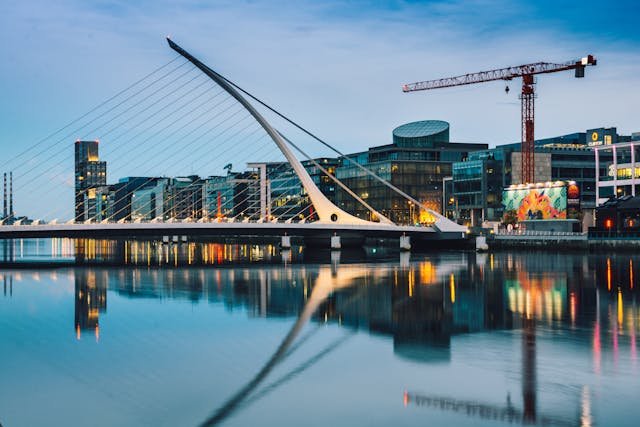
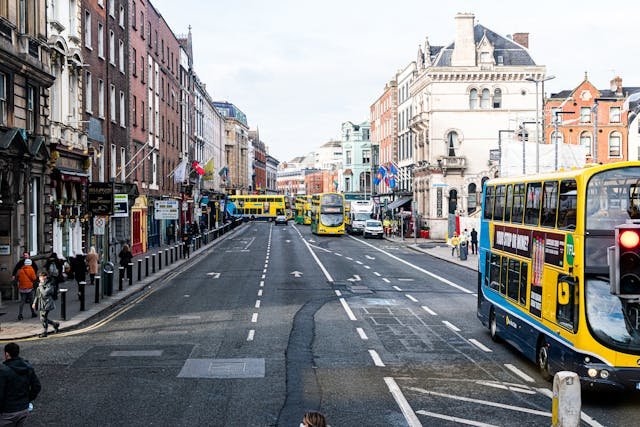
A little bit of the Irish Economy
The Irish economy has undergone a remarkable transformation in recent decades, evolving from a primarily agrarian-based society to a modern, diversified economy driven by industries such as technology, pharmaceuticals, finance, and tourism. This economic resurgence, often referred to as the “Celtic Tiger” phenomenon, has positioned Ireland as one of the fastest-growing economies in Europe.
One of the key factors driving Ireland’s economic success is its attractive business environment, characterized by low corporate tax rates, a skilled workforce, and a supportive regulatory framework. Multinational corporations, particularly in the tech and pharmaceutical sectors, have been drawn to Ireland, establishing European headquarters and manufacturing facilities, contributing significantly to job creation and economic growth.
The technology sector, in particular, has played a pivotal role in Ireland’s economic transformation, with companies like Google, Facebook, and Apple having a significant presence in the country. Dublin, often dubbed the “Silicon Valley of Europe,” has emerged as a thriving hub for tech innovation and entrepreneurship, attracting talent from around the world.
Additionally, Ireland’s pharmaceutical industry is another major driver of economic activity, with many of the world’s leading pharmaceutical companies operating manufacturing facilities and research centers in the country. This has not only created jobs but also fostered innovation and collaboration within the sector.
The financial services industry is another pillar of the Irish economy, with Dublin serving as a prominent global financial center. The city is home to numerous international banks, insurance companies, and asset management firms, leveraging Ireland’s reputation as a stable and business-friendly jurisdiction within the European Union.
Furthermore, Ireland’s tourism industry continues to thrive, attracting millions of visitors each year to explore its rich cultural heritage, stunning landscapes, and vibrant cities. From the historic streets of Dublin to the breathtaking beauty of the Cliffs of Moher, tourists are drawn to Ireland’s unique charm and warm hospitality, contributing significantly to the economy through spending on accommodations, dining, transportation, and attractions.
Despite its economic successes, Ireland faces challenges such as Brexit-related uncertainties, global economic fluctuations, and addressing issues of income inequality and housing affordability. However, with its resilient economy, skilled workforce, and innovative spirit, Ireland is well-positioned to navigate these challenges and continue on its path of prosperity and growth in the years to come.
Disclaimer: As an Amazon Associate, I earn from qualifying purchases. This website may contain affiliate links to products on Amazon.com. This means that if you click on an affiliate link and make a purchase, I may receive a commission at no additional cost to you. I only recommend products that I believe will add value to my audience. Your support through these affiliate links helps me continue to provide valuable content and resources. Some posts main contain links to other affiliate programs. Thank you for your support!

